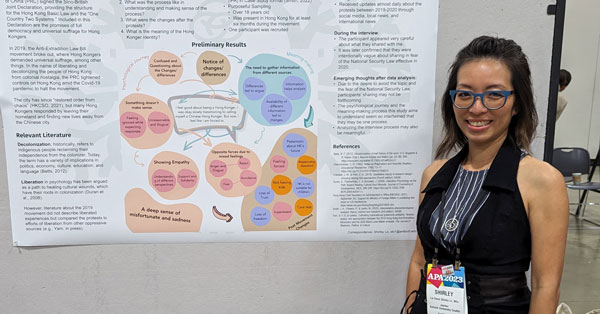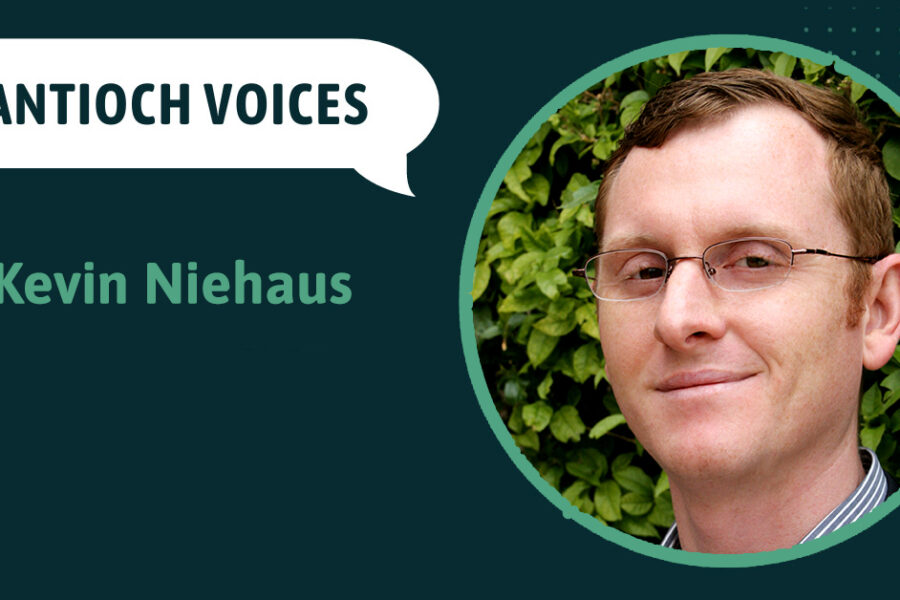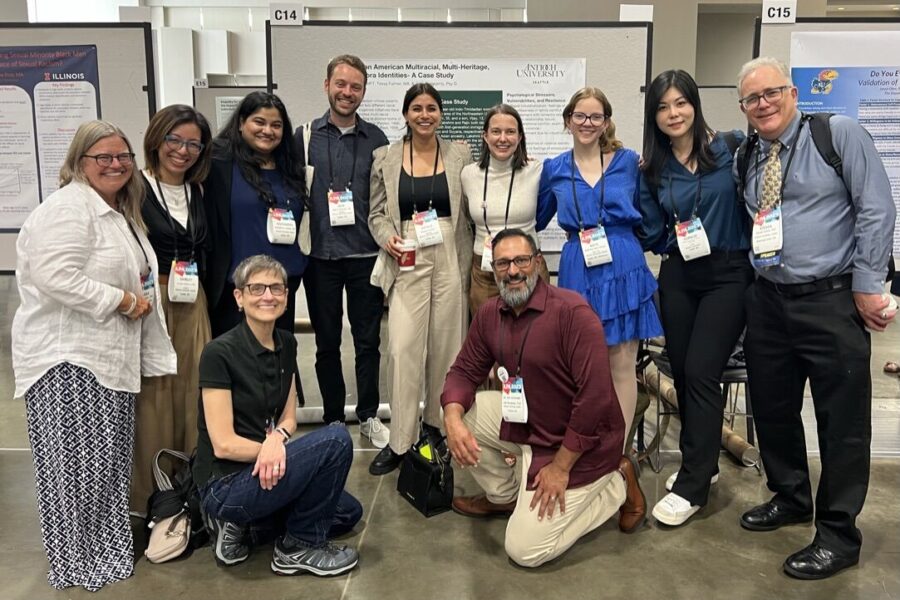
For Shirley Lo, traveling to her first in-person APA Annual Convention proved to be exciting. That’s because Lo, a third-year student in the PsyD in Clinical Psychology offered on Antioch University’s Seattle campus, won an award for the research poster she submitted.
This poster took as its topic colonization and decolonization in Hong Kong—a deeply personal and sometimes difficult topic for Lo, who was born and raised in Hong Kong during the period when this city-state in the South China Sea was much more autonomous from mainland China than it is today. In a recent email interview, Lo reflected on her experience at APA ‘23 and her plans for the future.
What topic did your research poster cover? Where did this interest come from?
My poster was about the experience of colonization and decolonization, covering the lived experience of Hong Kongers. More specifically, I wanted to learn more about Hong Kongers’ experience of the 2019 protest, which was a turning point for the future of Hong Kong as a city. I was born and raised in Hong Kong. Although I moved to North America about 15 years ago, I am naturally concerned about what’s happening to the city and its people. The 2019 protest was a significant event and affected everyone who has a connection with the city. Due to my involvement in the Decoloniality and Social Privilege Awareness Initiative within the Seattle PsyD program and all the discussions about social justice in my PsyD journey, I decided to build my dissertation around this topic. The research poster I presented at APA was a product of my pilot, which I will use to support my dissertation.

What does this win mean for you and your future work?
I honestly have mixed feelings about this award. On the one hand, it means acknowledgment of my work. I imagine that doing research is a lonely process for most researchers. And mine was not an exception. Thus, receiving an award provided a sense of acknowledgment and recognition. It reminds me of a very similar award I received years ago when I studied multicultural issues. On the other hand, it also increased exposure for my topic. This can mean two things:
- I would not consider the topic I chose to study as one that is eye-catching or what most people are interested in because it is very specific and it doesn’t seem to concern most people in the U.S. In fact, most visitors I had at the APA presentation did not know what happened in Hong Kong in 2019 and were curious about why I wanted to study it. Thus, I think receiving this award provides more opportunities for me to talk about it and may potentially increase people’s interest/attention to this topic.
- However, there is an inherent risk in doing research on politically sensitive topics like mine. This risk concerns not only me but also my family. In such a context, increased exposure may not be a good thing.
Was this your first time at APA? If so, what was the experience like for you? If it wasn’t, how has this year differed from others?
It was my first time at APA in person. I attended APA last year virtually. This year’s experience was very refreshing and enjoyable. I like the abundant choices of presentations and discussions. I wish there was more than one of me so that I could attend more sessions. I also enjoyed the opportunities to connect with people who have similar research and clinical interests. For example, I met a group of researchers who regularly discuss topics like coloniality among Asian Americans. I also met an author who had just published a book on Asian American psychology and psychotherapy. Although the cost of the trip to DC was expensive, attending APA provided a chance for me to connect with people within my program outside of the school setting. In addition to the award, the trip itself was a very rewarding experience.
Post Antioch, what do you hope to accomplish professionally?
In concrete terms, my short- to medium-term goal is to get licensed in Washington State and potentially the PsyPACT as well to broaden the landscape of potential work opportunities. I will likely extend my registration/licensure to another province in Canada using my PsyD credential. (I am currently a registered/licensed psychologist in one Canadian province.) Career-wise, I am for sure going to keep clinical work (psychotherapy and potentially assessment) as a major part of my professional future because this is where my passion lies. I would also like to continue my research work on coloniality, social justice, and multicultural issues, perhaps more specifically, the topic I am working on. In conducting my pilot study, I came across a handful of researchers who are also concerned about matters in Hong Kong. In addition to academic research, they also seem to do a lot of international advocacy work for Hong Kongers. If an opportunity presents itself, I would like to contribute to this effort so that more Hong Kongers, in or outside of Hong Kong, can get the support they need.



